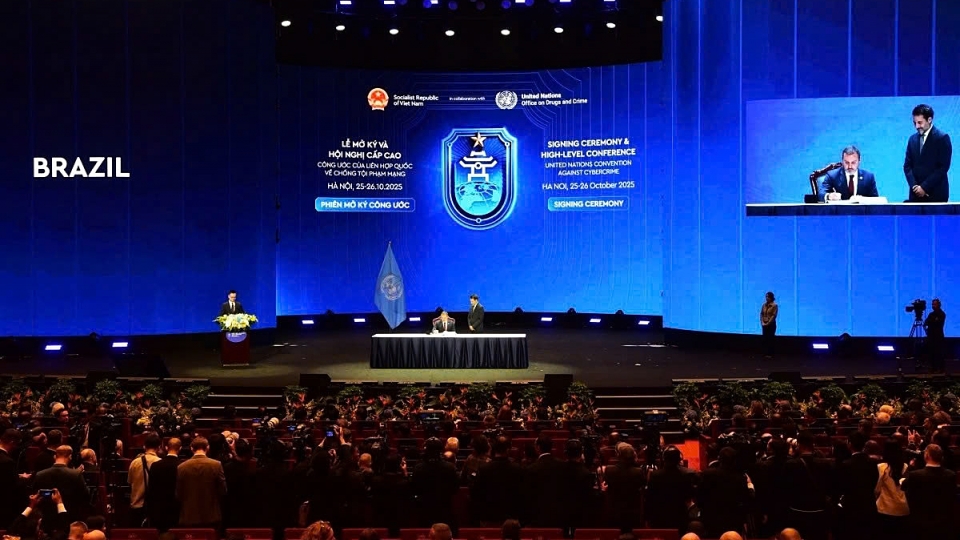Hanoi Convention: Protecting human rights, citizens’ rights in digital era
Protecting human rights and citizens’ rights in cyberspace is a vital foundation for building a safe, inclusive and people-centred digital future, heard at a high-level discussion held on October 25 in Hanoi.

The event, themed “Protecting Citizens in the Digital Transformation Era,” took place as part of the signing ceremony and high-level conference of the United Nations Convention against Cybercrime (the Hanoi Convention) in Hanoi.
The discussion drew broad participation from government leaders, international organisations and legal experts.
Vietnamese Minister of Justice Nguyen Hai Ninh highlighted that the adoption of the Hanoi Convention marks a historic milestone in international efforts to combat cybercrime, coming 25 years after the UN Convention against Transnational Organised Crime (the Palermo Convention) was adopted in 2000.
The journey from Palermo to Hanoi is not only symbolic but also demonstrates the international community’s sustained commitment to strengthening multilateral cooperation, harmonising legal frameworks and building flexible mechanisms to address complex cross-border legal challenges in the 21st century, he said.
According to the minister, humanity is now living in the Fourth Industrial Revolution, with breakthrough technologies such as artificial intelligence, big data, blockchain and the Internet of Things. Data has become a strategic resource that drives global development, connectivity and creativity. However, alongside these achievements, cybercrime has been rising rapidly, becoming more sophisticated and transnational, threatening not only economies but also national security and fundamental human rights.
In this context, the signing of the Hanoi Convention holds special importance as a platform for nations to reaffirm their shared commitment to fighting cybercrime and protecting people in the digital environment, he said, adding that Vietnam believes that the core value of digital transformation must be grounded in the protection of human and citizens’ rights in cyberspace.
To achieve this, he proposed several key measures, such as improving legal frameworks to safeguard human rights online based on international conventions; ensuring harmony between national and international laws; linking human rights protection with national interests; and promoting shared responsibility among governments, organisations, businesses and individuals in ensuring cybersecurity and digital safety.
Sharing Turkey’s experience, Turkish Minister of Justice Yılmaz Tunç said his country adopted the Internet Law in 2001 and has since introduced numerous legal documents to protect citizens from harmful and false information online. Turkey has also developed a digital justice platform connecting judicial agencies, allowing citizens to file petitions and follow cases online. The system now serves over 25 million users and enables virtual hearings via videoconference, improving transparency and access to justice.
He affirmed Turkey’s readiness to share its experience in digital justice and online safety with other nations.
Australia's Ambassador for Cyber Affairs and Critical Technology Jessica Hunter said Australia focuses on three priorities in protecting its citizens in the digital era: raising public awareness of online safety, providing toolkits and guidelines for identifying and responding to violations, and ensuring complaint and redress mechanisms so that citizens can report infringements of their rights online.



